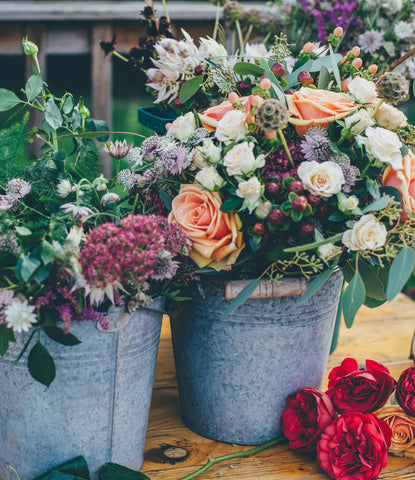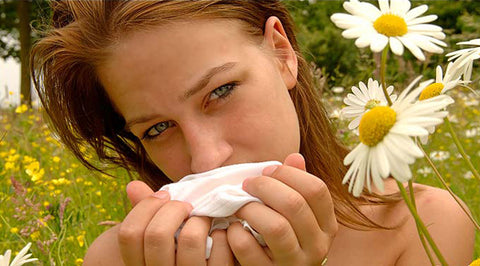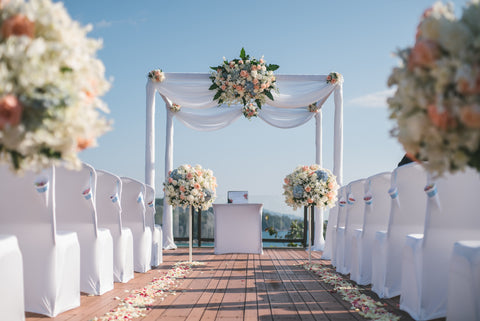A quick ‘Pop Quiz’ for you: What do Jon Bon Jovi, Kate Winslet, Cameron Diaz, Steffi Graf and Jodie Foster all have in common? Apart from probably having a few bob to their names, they are all reported to be famous hay fever sufferers and/or allergic to flowers.
With an estimated 20% of the UK population suffering from hay fever this summer, watch any weather report from now through to September and you’ll see the emphasis increasing on the ‘Pollen Count’ as the allergy season progresses and airborne allergens attack their hypersensitive victims. We all know somebody who suffers from hay fever, and you may even have thought twice about buying flowers for them over the years.
But why should a seasonal dose of rhinitis stop you from receiving or indeed sending flowers? Truth is, if their allergies are particularly severe, many flowers are going to affect the recipient negatively but, in general, the more dangerous flowers are the ones with the most pollen. So a good guideline for sending flowers to a someone who may potentially explode into an itching, weeping, snotty mess is to avoid choosing flowers that have visible pollen.
Asiatic and Longiflorum Lilies are some of the most dangerous flowers for allergy sufferers, as parts of them are covered in powdery pollen. Songstresses Tina Arena and Britney Spears are both alleged to have a lily allergy.
However, Lilies can be a good choice for allergy sufferers, as it is easy to simply remove the stems of pollen from each flower. Just try to find a non-allergic chum to do this particular job, as it will probably have the most robust nose and eyes and running at the earliest opportunity!
Another type of flower that is particularly bad for allergy sufferers is tree flowers / blossom. When choosing a spring flower arrangement, be careful not to include almond, cherry, apple, or any other kind of tree blossom.

Andrew, our Head Florist here at Flowers HQ recommends chrysanthemums and gerberas, with new hybrids coming onto the market bred so that the parts of the flower that used to produce pollen now produce extra petals. But watch out for regular chrysanthemums and daisies as they can be highly allergic.
Another great choice for the allergy sufferer is roses. Not only are roses the most popular cut flower to send, modern roses used in floristry don’t have much of a negative effect on allergies. The reason for this is that their pollen is too large in size to be able to become airborne and truly infiltrate the respiratory system. To allergy-proof your bouquet arrangement, choose roses with little or no smell as these will contain the least pollen.
One of the best kinds of flowers for allergy sufferers are orchids and exotic flowers. Very few types of orchids cause any pollen-related allergies, and so are quite safe for those allergic to most flowers. It is important to note, though, that some orchids may cause a slight skin rash on sensitive individuals.
If in doubt, do contact us first before placing our order.
Traditional bridal gowns don’t normally include pockets for hankies, so the last thing a bride needs are snail trails up her lace sleeves from a runny nose. If the bride or groom is known to suffer pollen allergies, here are some simple tips to keep in mind when choosing wedding flowers which will help minimise hay fever symptoms:


If you want an absolutely 100% allergy-proof alternative for hay fever sufferers, then artificial flowers are the product of choice. Unfortunately, Arena Flowers do not supply artificial flowers.
By following some of these simple guidelines, we hope you enjoy a pain-free summer this year, and don’t forget to consult a GP or pharmacist if symptoms persist!